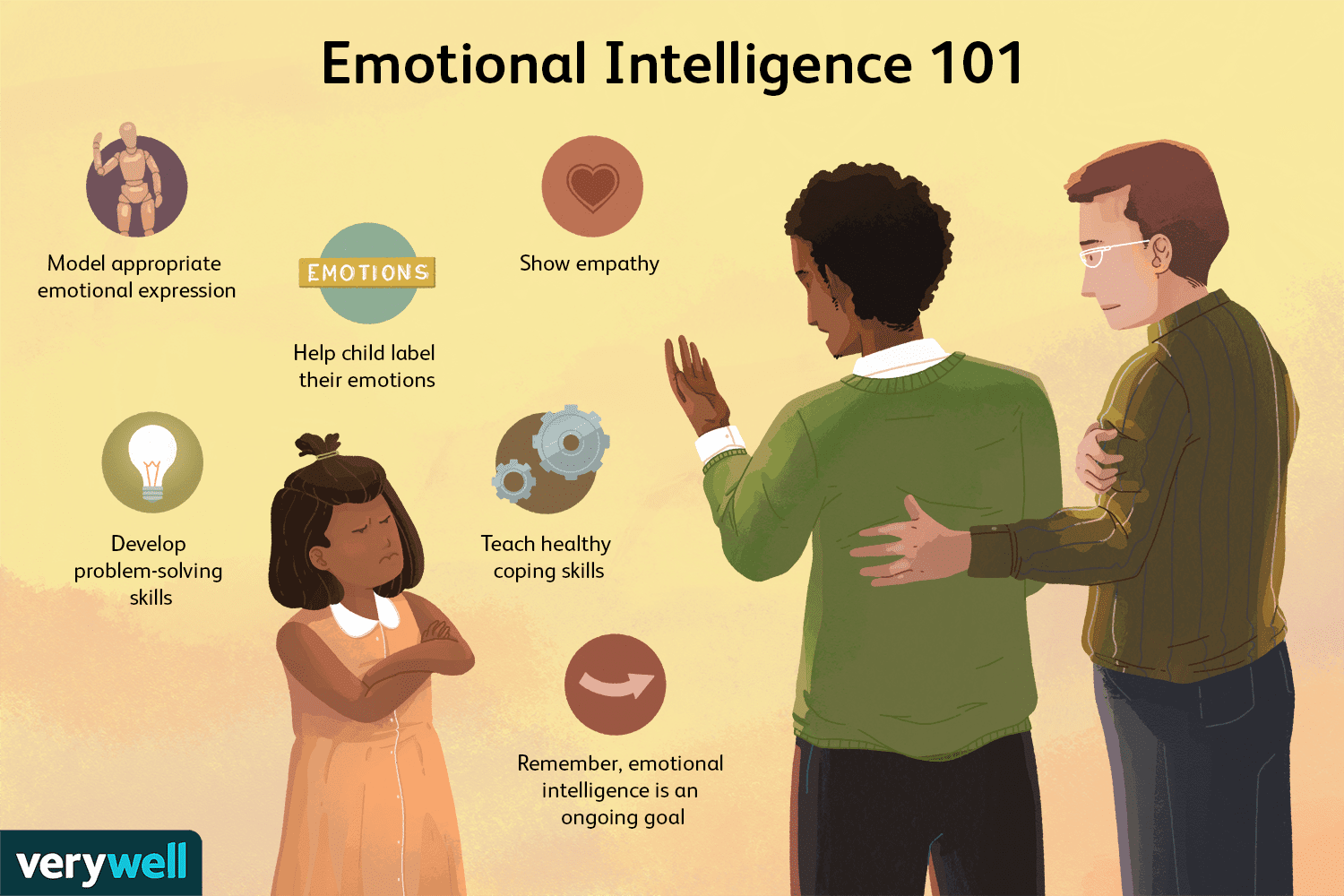Parenting is a multifaceted journey that presents both challenges and rewards. It demands continuous learning and adaptability, and one of the crucial skills to acquire is emotional intelligence in parenting.
Emotional intelligence, often abbreviated as EI or EQ, refers to the ability to understand and manage one’s emotions effectively, along with being attuned to the emotions of others. For parents, it serves as an invaluable tool to forge strong connections with their children and assist them in developing into emotionally well-adjusted adults.
Emotionally intelligent parents distinguish themselves by a few distinct practices.
Firstly, they prioritize comprehending their children’s perspectives. They make an effort to view situations from their children’s standpoint and empathize with their feelings.
Secondly, emotionally intelligent parents maintain awareness of their own emotions. They recognize that their emotional state can significantly impact their children, prompting them to take measures to manage negative emotions, such as anger or frustration, in a constructive manner.
Thirdly, these parents employ “I” statements when communicating with their children. This method aids in conveying how their children’s behavior affects them directly. Instead of resorting to phrases like “You’re being so disrespectful!” they might say, “I’m feeling hurt by what you just said. Can we discuss it?”
Around fifteen years ago, neuroscientists identified a crucial brain region linked to emotional intelligence: the prefrontal cortex. This region, responsible for higher-order cognitive functions like planning, problem-solving, and decision-making, also plays a central role in regulating emotions.
Studies have revealed that the prefrontal cortex undergoes development throughout childhood and adolescence, implying that it’s never too late to instill emotional intelligence skills in our children.
Phrases Emotionally Intelligent Parents Avoid:
- “Why can’t you be more motivated?”Emotionally intelligent parents avoid labeling their children as “lazy” or “unmotivated.” Instead, they seek to understand the underlying reasons for their children’s behavior. For instance, if a child is spending excessive time playing video games instead of doing homework, it could be due to boredom, feeling overwhelmed, or struggling with a particular subject. Instead of saying, “Why can’t you be more motivated to study?” a parent might ask, “What do you enjoy about video games?” or “How can I assist you with your homework?”
- “Why don’t you listen to me?”Recognizing that children are still learning how to communicate and manage their emotions, emotionally intelligent parents don’t take it personally when their kids don’t always listen to them. Instead of demanding compliance, they aim to foster open dialogues where both parties feel heard and respected. They might say, “I’d like to understand your perspective. Can you help me?” or “Effective communication is important to me. Can we try again?”
- “You are being so disrespectful!”Emotionally intelligent parents understand that kids may occasionally exhibit disrespectful behavior, but they refrain from jumping to conclusions. They make an effort to grasp why their children are acting a certain way and offer support. For instance, if a child snaps at them, instead of exclaiming, “You’re being so disrespectful!” a parent could inquire, “What’s going on? Are you feeling okay?” or express their own feelings with, “I’m hurt by what you just said. Can we discuss it?”



